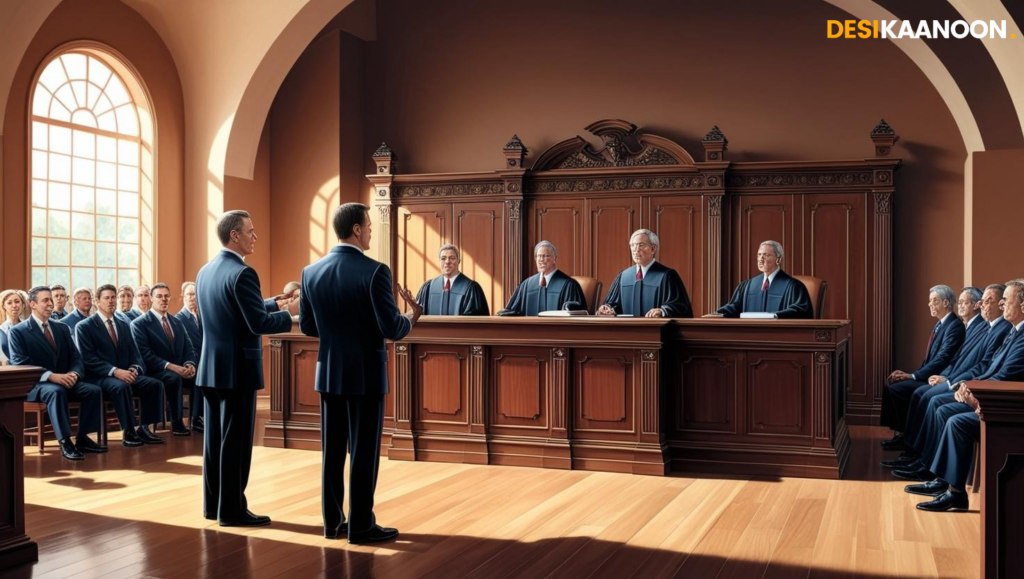Aastha Pareek
The Punjab and Haryana High Court on December 17 (Tuesday), ruled that litigants do not have an absolute right to represent themselves as a party-in-person before the Court.
Justice Sumeet Goel clarified that the discretion to allow such appearances lies solely with the Court or the relevant authorities. While the right to approach a judicial forum is a cornerstone of the rule of law and an essential pillar of the democratic legal system, the exercise of this right is subject to the legal framework of the land. The Court underscored that procedural norms, including those under the Advocates Act, 1961, impose general restrictions on non-advocates practicing or appearing before Courts as a matter of right. These norms ensure the effective redressal of grievances and the orderly functioning of the judiciary.
This observation arose during a case where two litigants appeared in-person to argue their plea seeking the registration of an FIR against Punjab Police officials for alleged illegal trespassing, assault, sexual harassment, and robbery. The petitioners also sought a probe by the Central Bureau of Investigation (CBI). Before delving into the merits of the case, the Court first examined the issue of whether a person has the right to appear in-person and plead their case.
Justice Goel reflected on the critical role of advocates in India’s adversarial judicial system. The system, which relies heavily on the competence, integrity, and ethical conduct of advocates, ensures the smooth and effective conduct of judicial proceedings. The Court likened judges to charioteers of justice, with advocates serving as the wheels of the chariot, facilitating the administration of justice. Advocates are not merely representatives of their clients but are also officers of the Court, expected to bring forth all relevant legal aspects, even those that may not favor their clients.
The Court highlighted the risks involved when litigants represent themselves. A lack of legal expertise and unfamiliarity with court procedures often leads to the ineffective presentation of cases. This can result in miscarriages of justice, either due to the litigant’s inability to present their case correctly or their failure to adhere to courtroom decorum. The Court noted that despite their best intentions, litigants often lack even basic knowledge of legal processes, which can hinder the administration of justice.
The judgment also pointed out that in emotionally charged disputes, such as marital cases, litigants representing themselves can obstruct justice due to their inability to approach the matter constructively. The skepticism some litigants harbor toward engaging an advocate often stems from unfamiliarity with the legal system. However, advocates are highly skilled professionals adept at navigating the complexities of the law, ensuring that cases are presented competently and fairly.
In cases where a litigant is unable to afford legal representation, the Court suggested that the issue can be resolved by providing legal aid counsel. Turning to the merits of the case, the Court observed that the petitioners should have approached the Judicial Magistrate for the registration of the FIR. Regarding the request for a CBI probe, the Court noted that no interstate ramifications were involved, and allegations against local police officials alone did not justify transferring the investigation to the CBI. Consequently, the plea was dismissed.
Case Name:– XXXX V. State of Punjab
Bench:- Justice Sumeet Goel

